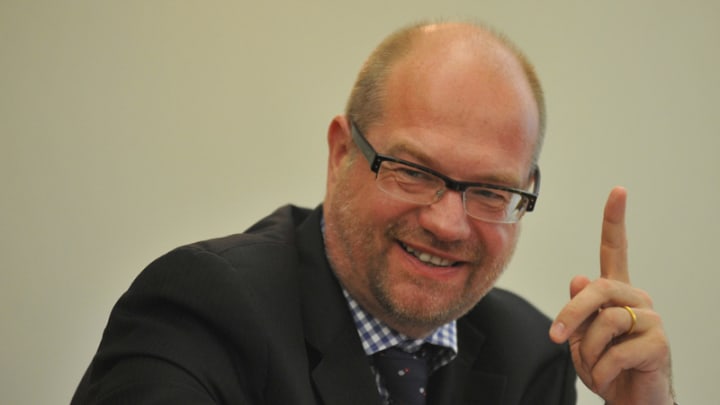WHO calls for collaboration between industry and academia to tackle rare diseases
The World Health Organisation (WHO), has encouraged industry players and those in the academic field to collaborate to deal with rare diseases in Ghana.
Diseases are referred to as rare if it affects fewer than 1 in 2,000 people within the general population of a country.
It includes sickle cell, cerebral palsy, autism, epilepsy, hydrocephalus, haemophilia (inability of blood to clot), thalassaemia (absence of adequate haemoglobin), spinal muscular dystrophies, and sickle cell.
The Director of Health Promotion at WHO, Dr Rudiger Krech, explained that because the management and care of rare disease patients are multidisciplinary, it requires effective partnership, particularly among industry and academia.
Collaboration among stakeholders, he said was necessary because the majority of affected patients and their families who were vulnerable lacked medical knowledge coupled with the difficulty to adequate care as well as isolation from society due to their condition.
He, however, noted that when industry and academia work together, it would lead to the tapping into a pool of expertise to help create the needed structures “for the management and care of rare disease patients.”
He added that such partnership would also bring together multidisciplinary competence and skills to serve the specific medical rehabilitative needs of rare disease patients and increase attention to rare diseases programmes.
He stated that WHO was pursuing innovative ways of financing self-centres so that patients and their families would not fall into poverty because of the payment related to the care of their rare diseases.
Dr Krech was speaking at a three-day African Summit on rare diseases in Accra on the theme, “Achieving universal health through equity.”
At the same event, the Acting Head for Public Health and Health Promotion at the Ministry of Health (MoH), Mark Kojo Atuahene, indicated that rare diseases have been captured effectively in Ghana’s United Health Care (UHC) policy and when implemented, has the potential to alleviate the suffering of patients.
He said the ministry was reprioritising its finances to areas that would ensure the protection of the poor and vulnerable, adding that, “it will be good to take more from the world and rechannel it to the poor and vulnerable.”
Mr Atuahene expressed the ministry of health’s readiness to work with rare disease communities’ initiatives and other likely organisations to recognise and support persons living with a rare disease (PLWRD).
Founder and Executive Director of the Rare Disease Ghana Initiative (RDGI), Mr Samuel Agyei Wiafe, in an interview with The Ghana Report, entreated communities to show kindness, concern and love to persons living with rare diseases.
“I believe that all of us will not be happy that we have a condition and because of the condition, we are treated as unworthy,” he said and encouraged parents not to abandon their children with such conditions.
He stated that the RDGI had started certain initiatives and programmes that have led to the discovery of over 70 rare diseases in Ghana. The initiative has therefore supported over 150 people from 91 families with 30 patients having received the diagnosis.
Currently, more than 300 million people are affected by rare diseases globally with over 7,000 different cases of the disease.



